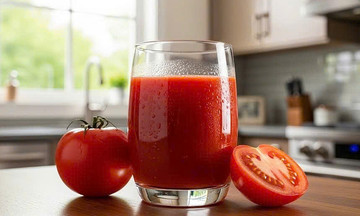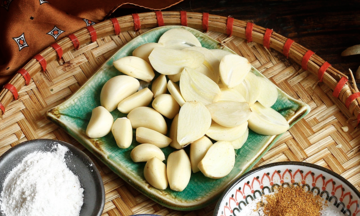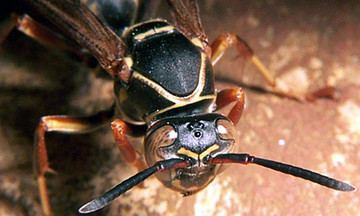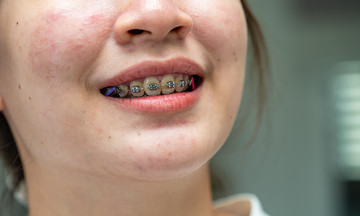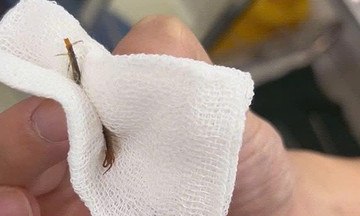Many people think using soap to clean produce is logical, similar to handwashing. However, experts advise against this because soap residue on food can be harmful if ingested, leading to digestive issues like diarrhea or vomiting.
According to FoodSafety, a food safety portal provided by US government agencies, unwashed produce can harbor harmful bacteria like Salmonella, E. coli, and Listeria, major culprits in food poisoning. The US Food and Drug Administration (FDA) recommends rinsing produce under running water and drying it with a clean cloth, paper towel, or in a salad spinner. This simple step effectively removes dirt and germs without introducing harmful chemicals.
Some people believe combining chemicals will enhance cleaning, but this is extremely dangerous. During the Covid-19 pandemic, one reported case involved soaking produce in a mixture of bleach, vinegar, and hot water. This combination created chlorine gas, causing the patient to experience shortness of breath and mild blood oxygen deficiency, requiring emergency care. Never mix household cleaning chemicals and avoid using them on food. Use only clean water to wash produce to prevent accidental poisoning.
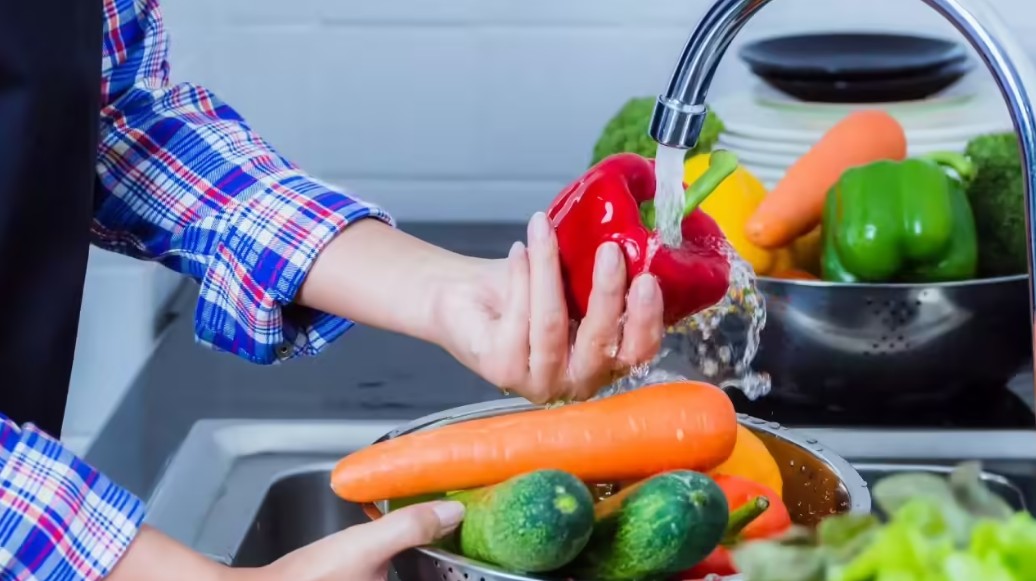 |
Illustrative photo: Times of India |
Illustrative photo: Times of India
Washing hands before handling produce is a crucial yet often overlooked step. The FDA recommends washing hands with soap and water for at least 20 seconds before handling any food. Unwashed hands can transfer bacteria and other contaminants to produce, rendering cleaning efforts useless.
Washing produce immediately after purchase seems convenient but can actually accelerate spoilage. Moisture promotes bacterial growth, causing produce to spoil faster. This is especially true for berries. Delicate fruits like raspberries, mulberries, or blueberries should only be washed right before consumption. The safe cleaning method is to gently place them in a colander, dip them in a bowl of cold water, and swirl to rinse off dirt before draining and patting dry with a paper towel to prevent bruising.
Many consumers purchase specialized produce washes hoping for superior cleaning, but research suggests they offer little benefit. A study from the University of Maine found rinsing produce with distilled water more effective than using commercial products. Soaking produce in clean water for 1-2 minutes can effectively and economically reduce germs.
Many believe all produce needs washing, including packaged items labeled "ready-to-eat" or "pre-washed." However, these products have already been cleaned, and rewashing may increase cross-contamination risk if they contact unclean surfaces or utensils. If rewashing, the FDA advises handling these items with clean hands and keeping them separate from raw foods.
Some produce like apples, cucumbers, and potatoes have a protective peel. However, this peel can harbor dirt, pesticide residue, and germs. Cutting or peeling unwashed produce can transfer contaminants from the surface to the edible portion. FoodSafety recommends scrubbing or rinsing produce with peels under running water to ensure safety.
Binh Minh (According to Times of India, FoodSafety, FDA)






